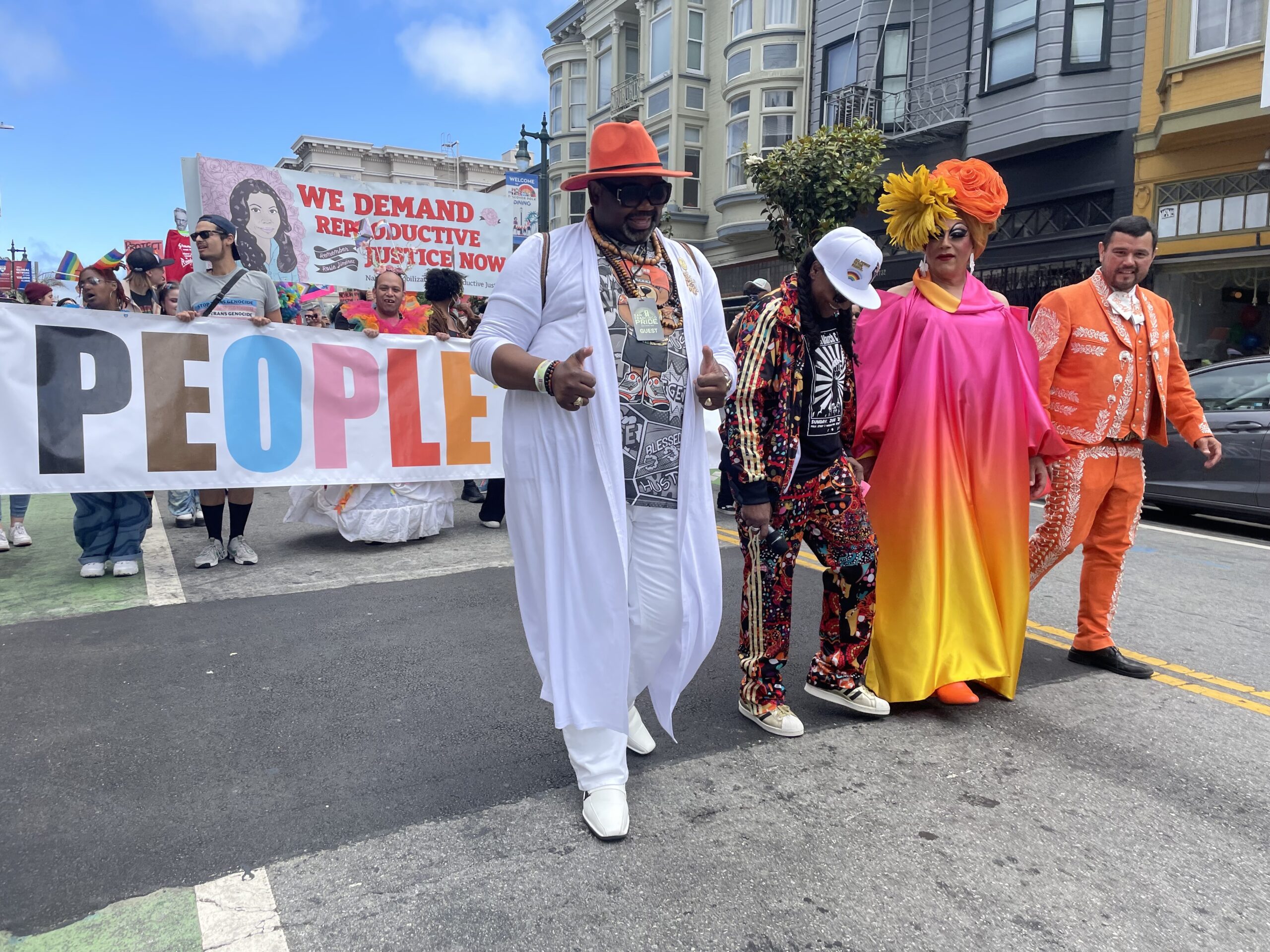Just a short walk from the festivities in Civic Center for San Francisco’s annual Pride Celebration, more than 200 organizers and protestors gathered along Polk Street for the People’s March.
Starting in front of the Cinch Saloon, the Polk Gulch neighborhood’s only remaining gay bar, the crowd erupted into a chant “Justice for Banko Brown” for the transgender man who was shot and killed by a San Francisco Walgreens security guard in April.
The march, which started in 2020 in the wake of the police killing of George Floyd, has come to commemorate the protest-based origins of the city’s first gay liberation march in 1970 and an antidote to the corporatism of the San Francisco Pride Parade, organizers and participants said.
“It’s a gathering of people who want change and don’t want to be part of corporate America,” said Juanita MORE!, a celebrated drag performer who helped organize the event. “It’s a way to get back to the roots.”
MORE! said it provides a place for people seeking a respite from mainstream Pride events often seized upon by large corporations.
Longtime activist Ham Lane attended the march for the first time and plans to participate for years to come. Lane had stopped going to Pride events because they believed it had moved away from celebrating queer people.
“Today, I’m thinking about Banko Brown,” Lane said. “This is a way for me to move away from the commercialization of the regular march.”
Brown’s death became a flashpoint in the city after District Attorney Brooke Jenkins announced that she would not seek charges against the security guard.
People in the crowd held signs on issues ranging from abortion rights, women’s rights and gay and transgender liberation. Several speakers referenced the 540 laws currently proposed across the country that they said are aimed at restricting the rights of the LGBTQIA+ community.
Zooey Zephyr, a transgender woman who is a member of Montana’s state senate, urged the crowd to continue to hold its local, state and federal politicians accountable on civil rights issues.
San Francisco Board of Supervisors President Aaron Peskin participated in the march and said it reminded him of some of his earliest Pride parades.
“It’s not a lot of corporate floats,” Peskin said. “It’s like the Pride Parade back in the old days.”
The crowd gathered on Fern Street for music performances and speeches at the march’s end.
Co-organizer Alex U. Inn ended their speech with calls for the crowd to be forceful in their activism without violence, leading the group in “unite to fight” chants.
“It’s not OK for someone to tell us not to love the person we love,” Inn said. “We need to get angry without being violent. We need to do the work to stop them from intimidating us.”
